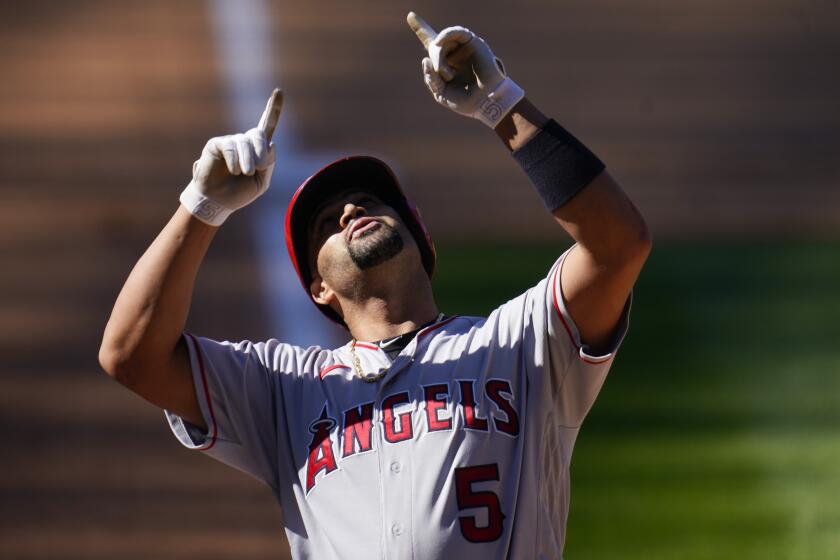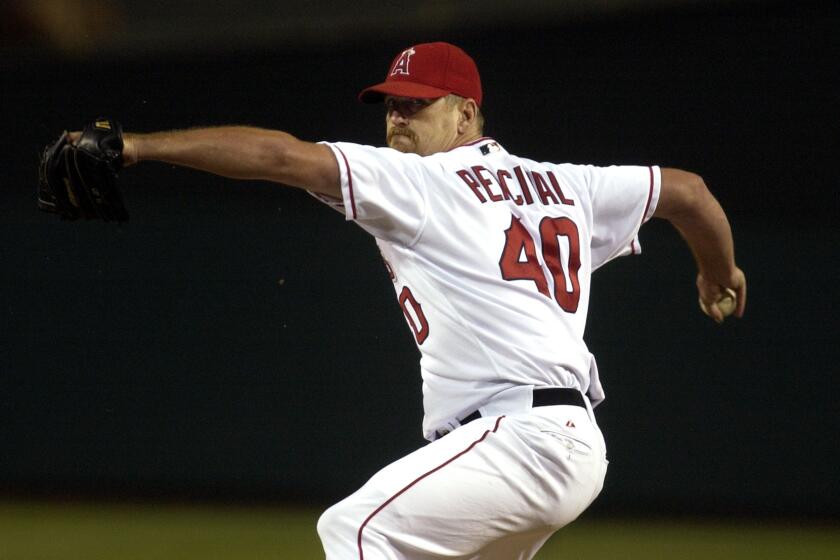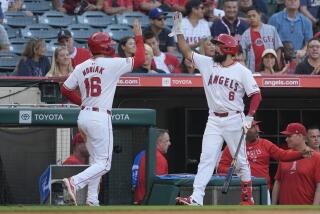Do the Angels have a replacement for Albert Pujols in Jared Walsh?
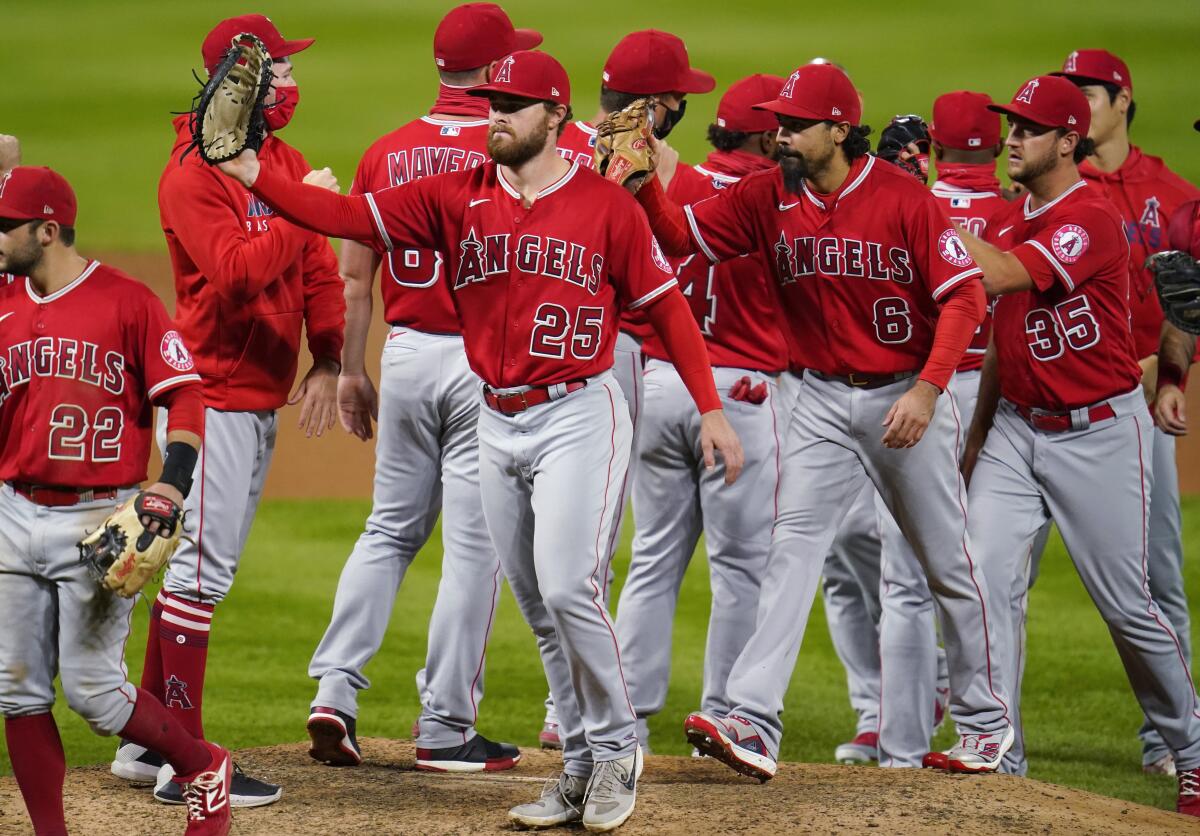
The Angels have been searching for a suitable replacement for aging Albert Pujols since they traded C.J. Cron more than two years ago.
Perhaps their solution is a player who lurked in the background before enjoying a major-league breakthrough.
Jared Walsh has been staking his claim as the Angels’ first baseman of the future with a blistering start to September, batting .389 with five homers and two doubles.
“Everybody wants to be a good major leaguer,” Walsh said at the onset of this torrid 10-game stretch, “not a good triple-A player. … I have by no means figured everything out, but I do think I’m moving in the right direction.”
Walsh nearly went undrafted out of college in 2015, left to worry if a team would give him a chance on the final day of the 40-round selection. The Georgia product waited until the 39th round. After the Angels picked him, he waited three more years before he emerged as one of the team’s best 30 prospects. When he reflected on the improbability of his ascent to the major leagues before debuting last season, he referred to himself as “Almost Mr. Irrelevant.”
But the last two weeks have provided a peek of what could be. And Walsh has shown he could supplant Pujols, whose contract extends through 2021, if his bat produces steadily during a full season.
Angels slugger Albert Pujols tied Willie Mays for the fifth-most home runs in MLB history with his 660th career homer in a 5-3 win over the Rockies.
“I really love this organization and want to be a part of it for a long time,” he said Saturday after his three-run moonshot, his fourth homer in as many days, secured the Angels’ 11-inning victory in Colorado. “I think there’s some really outstanding players here. I want to be a part of the future in any way I can. I think [my] role will kind of solve itself so I don’t really jump to conclusions too much.”
Walsh proved himself a reliable offensive threat for two consecutive seasons prior to this year. He hit 29 home runs, 34 doubles and one triple across three minor league levels — Class A Inland Empire, double-A Mobile and triple-A Salt Lake — in 2018. He followed that up with 36 homers, 30 doubles and a .423 on-base percentage at triple-A in 2019.
But his first sojourn in the major leagues last season was underwhelming. He packed up for the offseason after batting .203 with seven extra-base hits in 31 games.
Still, Walsh showed flashes of potential. When he managed to conquer his violent swing and get his barrel to the ball, he made hard enough contact to average an exit velocity of 91 mph, a figure better than the typical MLB hitter. He also produced a higher percentage of line drives than fly balls.
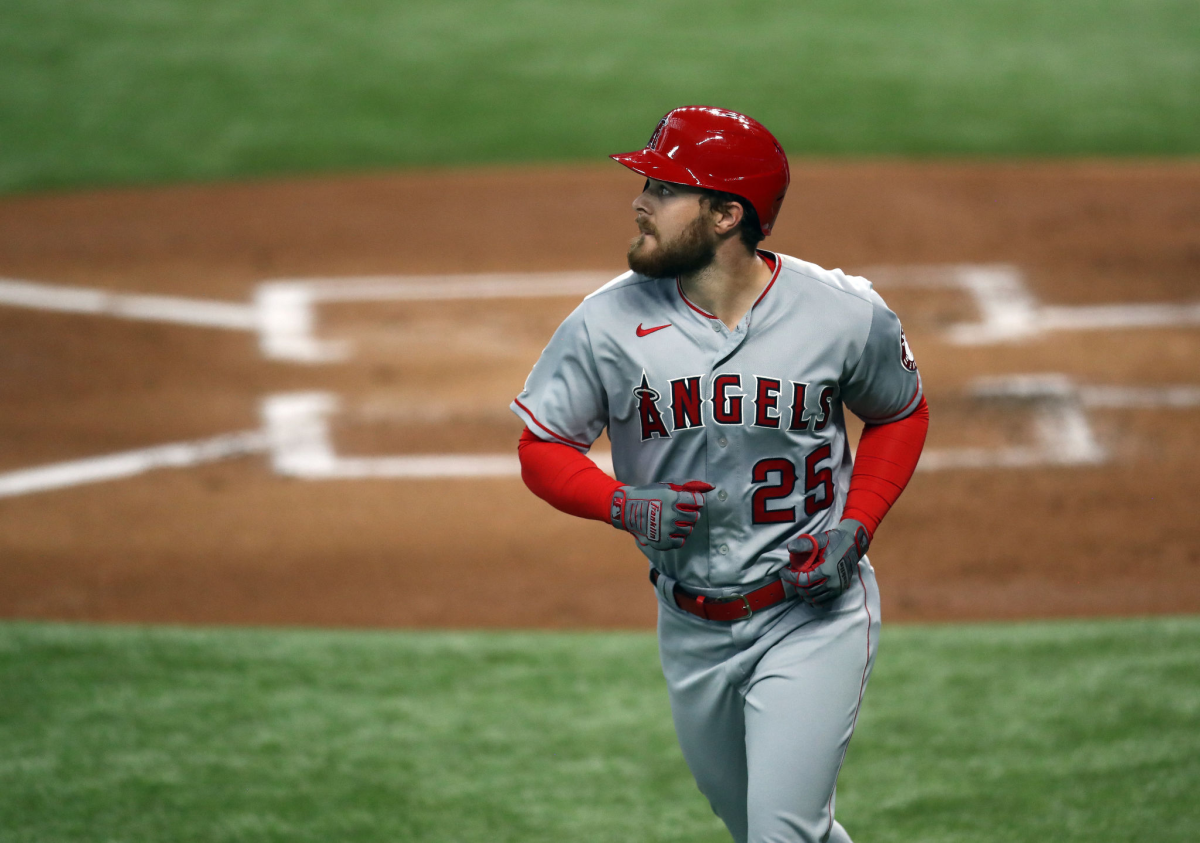
”...The way he starts the bat and the way he swings the bat, I like it a lot.”
— Angels manager Joe Maddon on Jared Walsh
The raw power was apparent to manager Joe Maddon on his first encounter with Walsh in spring training. Walsh left the same impression this summer, even after missing a few weeks of the team’s July training camp when he contracted COVID-19, and earned a spot on the opening day roster.
Walsh was optioned after 10 games, but Maddon remained intrigued. When Walsh’s hot streak began, Maddon wasn’t surprised.
“His hands are those special kind of hands,” Maddon said.
Walsh needed to figure out how to use his hands properly. He went through a number of mechanical changes in the batter’s box. Last season, he kept his bat moving behind his head while a pitcher set up to throw, then dropped his hands nearly to his waist as he crouched over the plate to swing. Coupled with a high leg kick, Walsh looked like he was winding a crank.
“I had a lot going on,” Walsh said. “It worked sometimes, but it wasn’t consistent enough.”
Brian Harkins, the former Angels clubbie who was fired in March for allegedly providing illegal substances to visiting pitchers, has filed a legal complaint.
During his first stint with the team this season, Walsh was still wiggling his bat over his shoulder, but he had replaced the leg kick with a toe tap. He went hitless and showed minimal power in 10 at-bats before his demotion.
Inspired by Anthony Rendon, Mike Trout and Pujols, Walsh simplified his setup. He is back to his leg kick, but he keeps his bat in front of his left shoulder. He only waggles it slightly in the moments before taking a hack.
The tinkering allowed Walsh to create a smoother path to the ball. He’s now scorching pitches he puts in play, averaging an exit velocity of 90.5 mph since he was recalled late last month.
Walsh has 14 hits in 40 plate appearances in September. Among hitters with at least 28 plate appearances this month, his 1.317 on-base-plus-slugging percentage is second only to Trout’s. Walsh is third to Trout and Jeff McNeil of the New York Mets in terms of weighted runs created plus, which assesses a player’s ability to create offense. Walsh’s 237 wRC+ indicates he has performed 137% above league average.
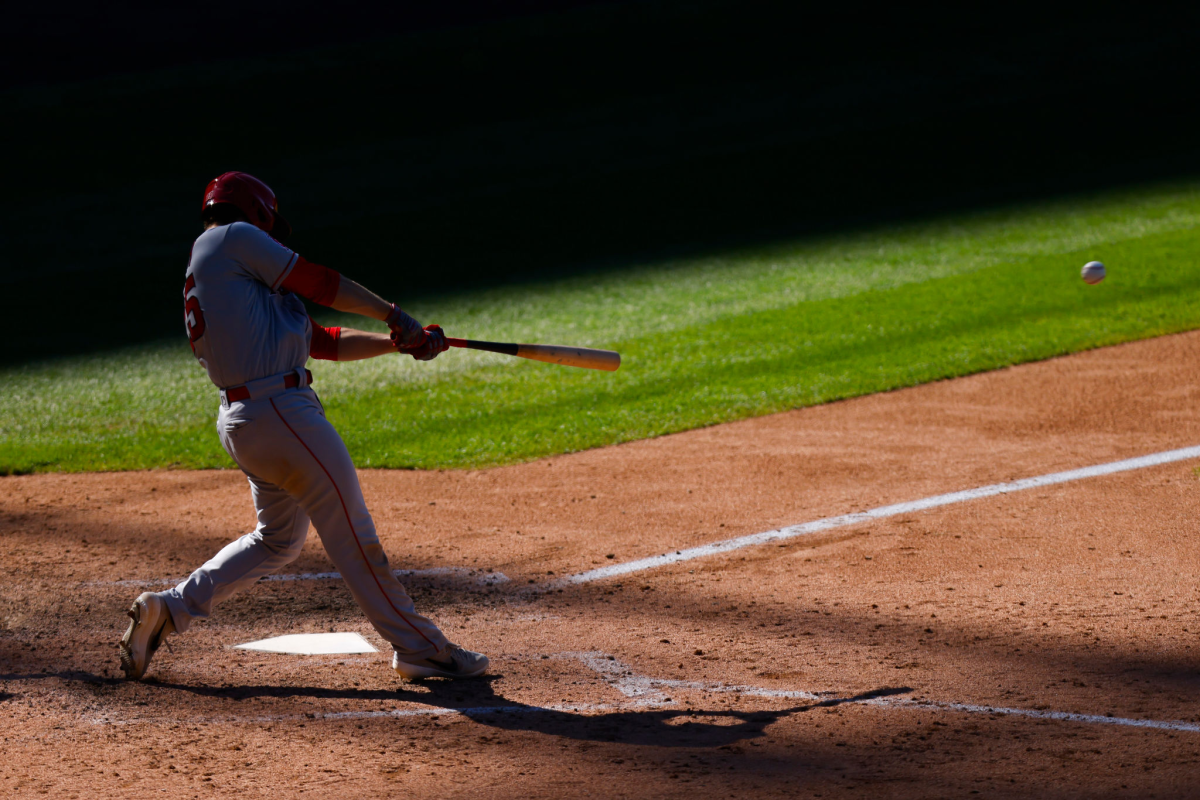
Two years ago, the Angels wondered if the best way to get Walsh to the major leagues was to have him moonlight as a left-handed reliever. He pitched in college, so a return to the mound came easily. He appeared in five games for the Angels last season and 21 games in the minor leagues from 2018 to 2019.
Walsh expects to play two ways again next season, but the longevity of his major league career might not depend on his versatility after all.
Consistency at the plate will be instrumental for Walsh. He’ll have what is left of this 60-game season and probably all of the 2021 season to show he’s capable of it.
“I know when somebody like this bursts onto the scene, there’s some kind of concern as to whether this is temporary or not,” Maddon said after Walsh’s fourth consecutive multi-hit game Sunday. “But the way he starts the bat and the way he swings the bat, I like it a lot.”
More to Read
Go beyond the scoreboard
Get the latest on L.A.'s teams in the daily Sports Report newsletter.
You may occasionally receive promotional content from the Los Angeles Times.
